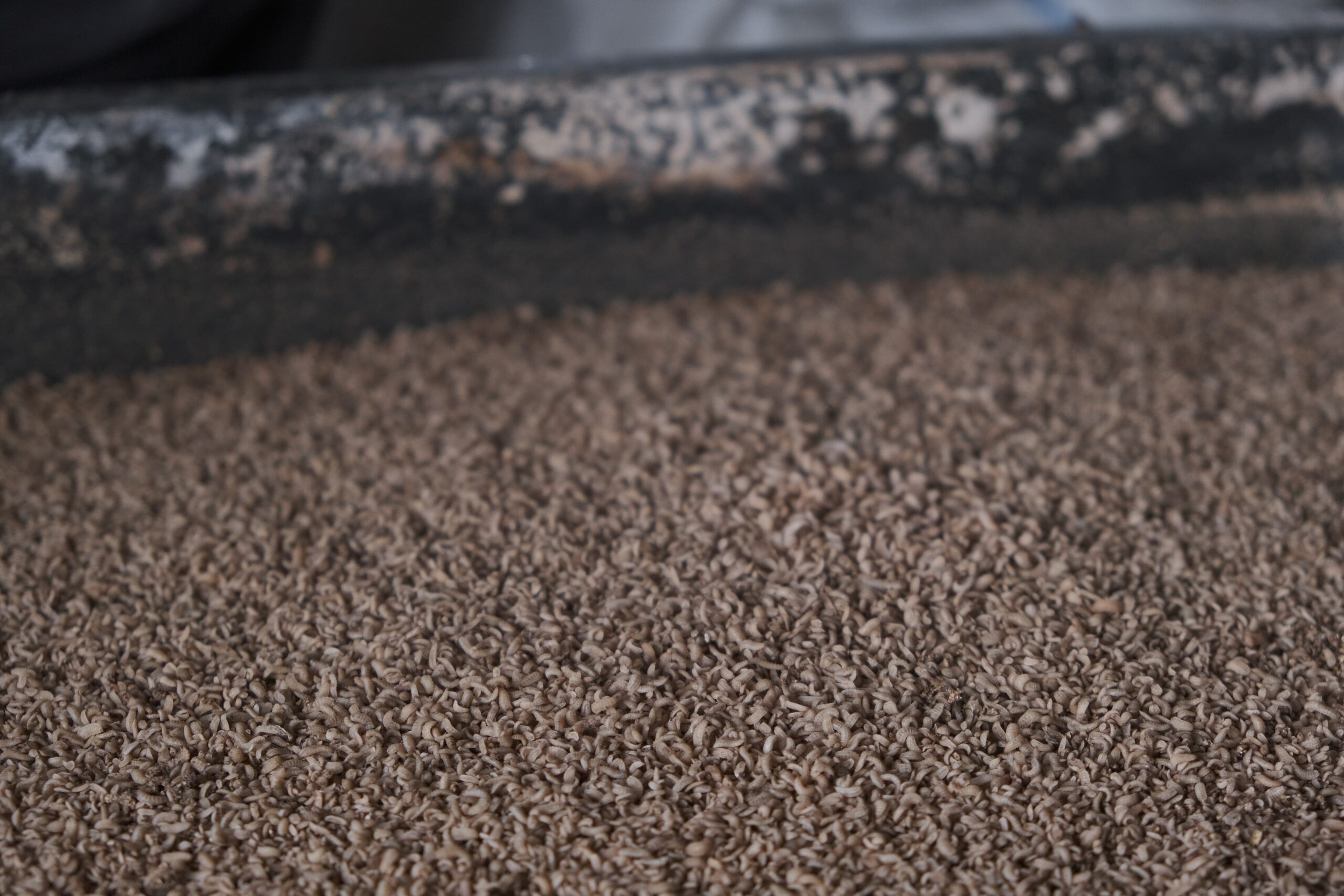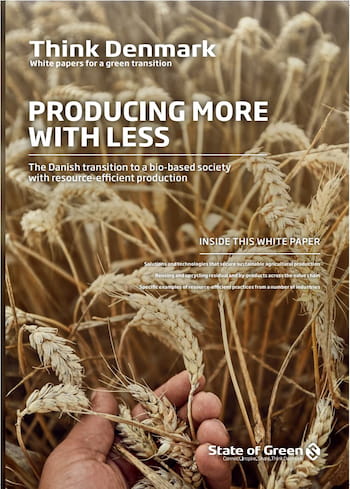Download our publication from producing more with less
This article is part of our publication ‘Producing More with Less’
Download nowPerspective
Bioenergy
Bio-based circular solutions
Waste management


Creating value from low value biomass is essential in the bioeconomy. By converting waste with larvae from the Black Soldier Fly, otherwise unused
or downgraded resources are transformed into high value protein, oil and fertiliser.
By 2050 there will be more than nine billion people on the planet. This will place immense pressure on the planet’s resources. The demand for sustainable food production is therefore higher than ever before. ENORM’s mission is to create a food and feed revolution that will lead to consumers
eating in a more environmentally friendly manner.
Insects are a known sustainable source of protein, and the Black Soldier Fly has the potential to make a sizeable impact. The fly larvae have a short life cycle and are highly effective in converting biowaste into valuable products. At the same time, they can be fed on wet substrates, which means that they can utilise a wide range of available waste products from the food and feed industry. The Black Soldier Fly is therefore superior to other insects that are raised for food and feed.

This article is part of our publication ‘Producing More with Less’
Download nowWe are developing the production of an environmentally friendly substitute to other animal proteins and high-quality vegetable proteins, such as fishmeal and soy. In 2022 we will be producing 30 metric tonnes of larvae per day, where most of it will be processed into fish feed and a smaller part of it will be used for food ingredients. From this, three main outputs will arise: insect meal (dried and defatted larvae with 60 per cent protein), insect oil (fat derived from the dried larvae) and fertiliser (larvae manure).
We already have a range of food products with insects on the Danish market that are sold in some of the largest Danish supermarkets. This way, we are successfully nudging the consumer towards accepting insects as food and other production animals fed on insects. We are in the process of automating and scaling up the production of insects for feed. We have long-term global ambitions, but Northern Europe is our initial target market for the fish feed. Our ambitions mean that we are on the lookout for international partners and international collaboration.
Scientists and the Food and Agriculture Organisation of the United Nations envisage a bright future for insects in the world’s food production. The insect industry is presenting a viable solution to many of the Sustainable Development Goals, such as Climate Action, Zero Hunger and Life on Land.
publications
Resource efficient production
+15